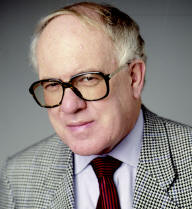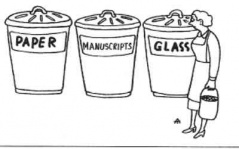The Editor's View September 05
Magazine

John Jenkins' monthly column from Writers' Forum magazine
Nobody knows what makes a best-seller . . . what did you pay for your Potter? Desktop comes of age . . . reading benefits
WE HAD an amusing and pertinent letter from Pete Brown recently who reminded us that Doris Lessing perpetrated a gigantic hoax on her publishers. She submitted a novel of 120,000 words under the false name of Jane Somers: The Diary of a Good Neighbour. They took a week to turn it down. Clearly nobody really knows what makes a best-seller.
Her paperback publishers took a month to reject it.
Things are no better in France. Le Figaro sent the manuscript of Madame Bovary to five vanity publishers and not one recognised it.
 Some of them reported that they had submitted the work to a "team of writers, professors and journalists, had studied it and were prepared to print 300 copies for 3,360 Euros. . ."
Some of them reported that they had submitted the work to a "team of writers, professors and journalists, had studied it and were prepared to print 300 copies for 3,360 Euros. . ."
Le Figaro, in a masterpiece of understatement said: "This committee should have been surprised at the literary quality, at the style of the text and at the absence of faults which contrast sharply with what they usually receive."
Flaubert must be rotating in his grave.
THE SECOND question among the young literati after have your read the latest Harry Potter? is not what did you think of it, but what did you pay for it.
For James Heneage, managing director of Ottakars, charged £11.99 and hoped to sell 100,000 but in the face of competition from the supermarkets managed only 70,000, despite midnight opening and temporarily re-branding itself as Pottakars.
Tesco's, who charged £7.96, sold 500,000.
Ottakars are big enough to look after themselves and Philip Dunne, Conservative MP for Ludlow, was quick to add his support to a Commons motion attacking supermarkets for their cut-price Potters. Who is Mr Dunne? Why, chairman of Ottakars.
I felt sorry for the independent shops which were hard hit by the supermarkets.
Tony Peachey of Seaways book shop in Fishguard has come up with a novel idea. He has appealed to top selling authors to set terms in their contracts to prevent extreme discounting of their books.
In a letter to the Independent he reported that he had bought a supply of the book at the trade price of £10.70 to sell near the recommended retail price of £16.99 only to find his local Kwik Save selling it at £4.99. Publishers Bloomsbury has consistently said it does not offer terms that justify deep discounting but Bloomsbury’s definition of justify and Kwik Save’s are miles apart.
All this raises the questions of what happens to dedicated book shops, large and small, as supermarkets eat into their profits by stocking the top 10 best-sellers?
If I were Kate Swann at W H Smith I would be very worried.
Staples, Neat Ideas and Viking are dominating the stationery market, supermarkets are taking a large share of the magazine and newspaper sales, dedicated card shops take the fat profits on greetings cards and a takeover bid for WHS foundered because of a massive £200 million hole in their pension fund. Now supermarkets could eat into their book profits.
GUIDED independent reading significantly improves reading ability more than unguided practice without feedback. That’s a quote from a report from Renaissance Learning which tested 50,000 students.
It also benefits general levels of education in most subjects. In fact, "reading is the key to academic success." Strange how we need a survey and a fancy new name to prove grandma’s common-sense. "If you can read, you can educate yourself," they used to say and while it may not be the whole truth it went a long, long way.
Sir Cyril Taylor, chairman of the Specialist Schools Trust, has given his backing to Accelerated Reader, an American computer programme used with huge success in 60,000 American schools.
It works by quizzing children on the books they have read in a series of multiple—choice tests, graded according to age. Surveys so far in Britain indicate that reading has a far greater bearing on academic success than economic and social factors.
DID you know it is now 20 years since desktop publishing entered Britain, producing one of the greatest changes in printing since Caxton smudged ink on paper? It took just about five years for it to transfer typesetting and layout into the hands of the publisher.
Apple Macs broke new ground and you will find they are still the favourite with publishers. Hardware was expensive, software was basic until the advent of Pagemaker which offered fresh options.
Not all designers fell in love with Macs but by the 1990s they had established a lead in the sector. Eddy Shah and Rupert Murdoch broke the back of printing union closed shops with the help of Margaret Thatcher, and although it was good to see restrictive practices and outdated methods ended, I still miss the smell of printers’ ink.
LISTENING to a Radio Four lunch-time music quiz hosted by Ned Sherrin I felt a glow of satisfaction at naming, the song, the composer and the artist: St Louis Blues, W C Handy and Louis Armstrong. What I didn’t know was that Handy could not find a music publisher so set up his own company and published it himself. Clearly, there’s nothing new...
John Jenkins, Publisher, Writers' Forum
Read the article about setting up WritersServices which was originally published in Writers' Forum magazine.
© Writers International Ltd 2005. Reproduced from the December-Januray edition of Writers' Forum magazine by kind permission of the editor.
